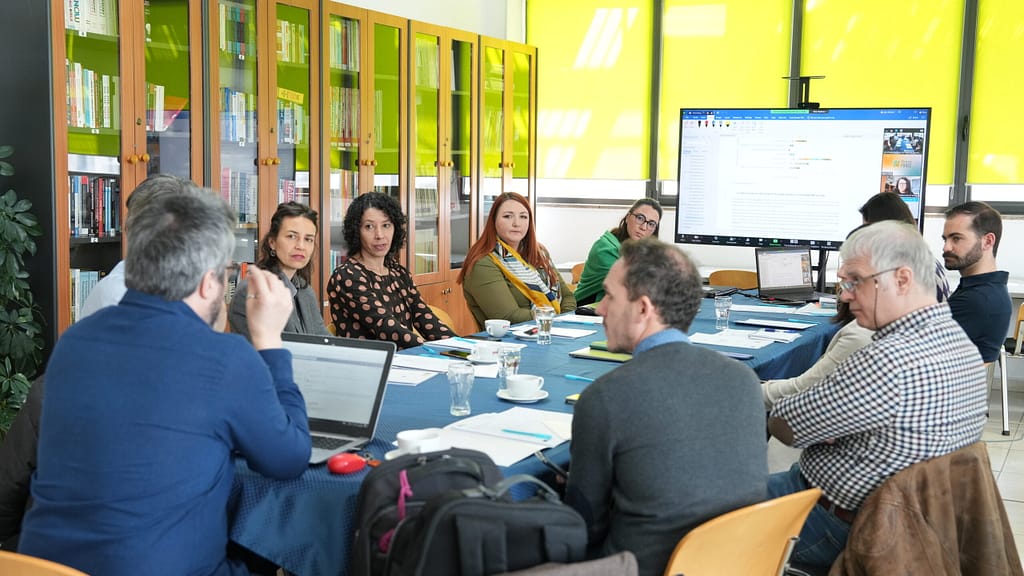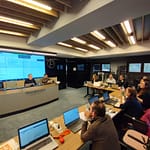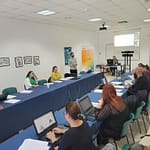Editorial - Our endeavor to a Just Green Transition
The Western Balkan countries have been undergoing a long post socialism transition since the fall of communism in 1990. This transition has brought some improvement in governance, development of market economies, and progress in the consolidation of democratic institutions. Despite this progress, the region faces multiple challenges as it seeks to align itself with the European Union’s Green Agenda.
One of the biggest challenges the Western Balkan countries face is the issue of climate change and pollution. Over the past decades, warming has accelerated, and throughout the 21st century it is projected to be higher than the world average. The observed changes in precipitation over the last few decades are less clear, but almost all climate models agree that the region’s countries will experience a significant decrease in precipitation by the twenty-first century, accompanied by an increase in drought conditions and, thus, water availability. Considering this the region’s environmental and ecological resilience is at stake, which poses a significant risk to its economy as well as its people’s social well-being. Another challenge is to transition from fossil fuels to clean and renewable energy sources. The Western Balkans rely heavily on coal for power generation, which causes severe pollution, particularly in localities near mining sites. As national economies grow, demand for electricity relies on renewable energy sources like wind and solar power However, the current grid’s infrastructure and availability remain a significant challenge. Landfills’ emission sources create air and water pollution that require urgent actions to mitigate, as this creates significant health hazards for people in the area. Landfills in the region are, in general, inadequate or illegal dumps, with no concern of the international provisions arising regarding waste management. Countries in the Western Balkan struggle to align themselves with the European Union’s environmental legislation, particularly with the European Climate Law, which requires a 55% reduction of CO2 emissions for EU member countries by 2030. Harmonizing environmental standards, financial mechanisms for a sustainable economy, and closing the technological gap between the region and the EU member states, poses significant challenges.
The WB represent a diverse and complex region, where political and economic reforms are inherent to the EU accession process. Mainstream policies in the WB have prioritised regional economic growth and competitiveness, placing little attention on the potential of R&I as a means to achieve broader societal goals. Nonetheless, broadening the research excellence and capacity in knowledge domains and increasing the innovation potential in key sectors contributes directly to enabling and/or accelerating the green and digital transitions, and therefore to sustainable and resilient regional development. Yet, research output and quality are still to flourish in the WB. While WB economies have a comprehensive strategic framework for science, technology and innovation in place, effective implementation is sometimes hindered by limited co-ordination, as well as a lack of policy prioritisation and impact evaluation. In addition, the overall expenditure on research and development remains low, and well below the EU level. On a positive note however, the number of public and private higher education institutions has increased by 37% between 2007 and 2015 across the region, and the position of universities and faculties has become stronger within the research area. Furthermore, 900 WB institutions have benefited from knowledge produced in Horizon 2020 projects.
The European Commission adopted on October 2020 a comprehensive Economic and Investment Plan for the Western Balkans, which aims to spur the long-term economic recovery of the region, support a green and digital transition, foster regional integration and convergence with the European Union. In order to support reaching the goals of the Economic and Investment Plan for the Western Balkans and to ensure the sustainability of investment in the region, in 2021 the Commission developed a forward-looking Agenda for the Western Balkans on Innovation, Research, Education, Culture, Youth and Sport.
In this framework, GreenFORCE – a Twinning Western Balkans project was designed to lead the Western Balkans to a greener future for the Horizon Widera 2021 call, and started to be implemented in July 2022.
Conceptualising the just green transition for the WB is the purpose of the twinning partnership of Co-PLAN, the Institute for Habitat Development in Albania, the University of Belgrade in Serbia, the Center for Economic Analyses in North Macedonia, the pan-Nordic research organisation Nordregio in Sweden, the Italian Polytechnic University of Turin, and POLIS University in Albania. The EU-funded GreenFORCE project will foster excellence in the Western Balkans’ green transition. It will enhance the universities’ profile, strengthen research and management capacities of their staff, and contribute to convergence between Western Balkans and the EU. The organisations will work closely to produce and exchange knowledge, transcending from individual learning to institutional learning.
The green transition in the Western Balkans offers a unique opportunity for the region to take advantage of its natural resources and strategic location to build a more sustainable and eco-friendly economy. However, given the significant challenges and obstacles that must be overcome, success will require strong political leadership, collaborative action from businesses and civil society, and a commitment to meeting the needs and interests of local communities. If these challenges can be overcome, the Western Balkans could serve as an example of successful green transition for other regions to follow.




